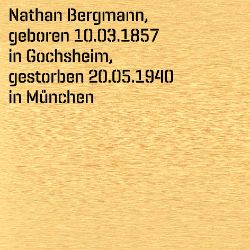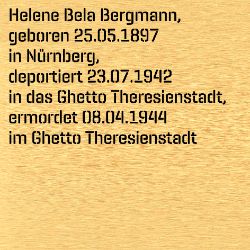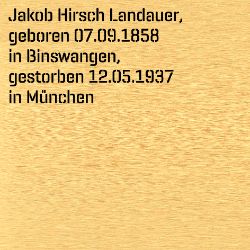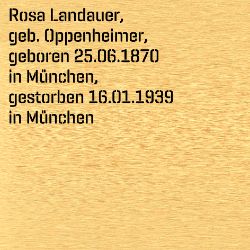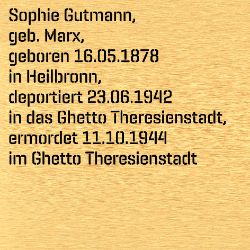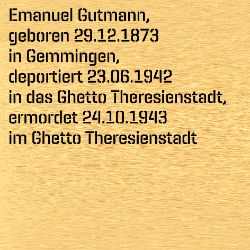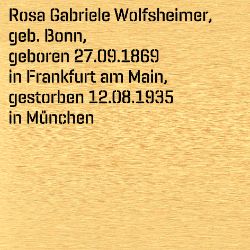Mina Spear was born in Sonneberg, Thuringia, on August 21, 1869. She was the daughter of merchant Jakob Wolf Spear and his wife Sophie Rika, née Rindskopf. Her father had changed his original surname Spier to the more English-sounding Spear following a lengthy period living in the USA. In 1879, he founded the world-famous toy company J. W. Spear & Söhne, which made such classic games as “Denk fix” (“Tell Me: The Grand Quiz Game”) and ”Das magnetische Angelspiel” (“The Magnetic Fishing Game”). We can only imagine what an effect her father’s suicide in 1883 after three fires at the factory and an anti-Semitic hate campaign against him must have had on Mina Spear. On March 6, 1889 she married the hops dealer Nathan Bergmann in Nuremberg. The couple had three children, Wilhelm, born in 1894, Else, born in 1895, and Helene, born in 1897. The death of Wilhelm in 1908 aged just 14 must surely have been a heavy blow of fate for the family. During the Nazi period, the Jewish Bergmann family suffered massive restrictions. An especially unparalleled anti-Semitic hate campaign began in Nuremberg under Gauleiter (regional Nazi party leader) Julius Streicher. In 1934, Mina Bergmann moved away from Nuremberg to Tengstraße 25 in Munich with her husband Nathan, her daughter Helene and her granddaughter Anneliese. In Munich, Nathan Bergmann ran the hops retail business N. Bergmann & Co. The business had to close on June 29, 1938. Mina Bergmann had health problems during this time and spent several periods in Munich health resorts. In June 1941, a year after the death of her husband, Mina Bergmann was admitted to the Israelitische Privatklinik (Israelite Private Clinic) at Hermann-Schmid-Straße 5. On June 4, 1942 the Gestapo (Secret Police) deported the 72-year old to the Theresienstadt ghetto. She died there a short time later on June 30, 1942 due to the catastrophic living conditions and the deliberate lack of food and medical care. Her daughter, Helene, was also murdered in Theresienstadt. (text Elisabeth Rosa M. Noske, editor C. Fritsche, translation C. Hales)



-Bergmann_portrait.jpg/jcr:content/PORTRAIT_14368.jpg)

